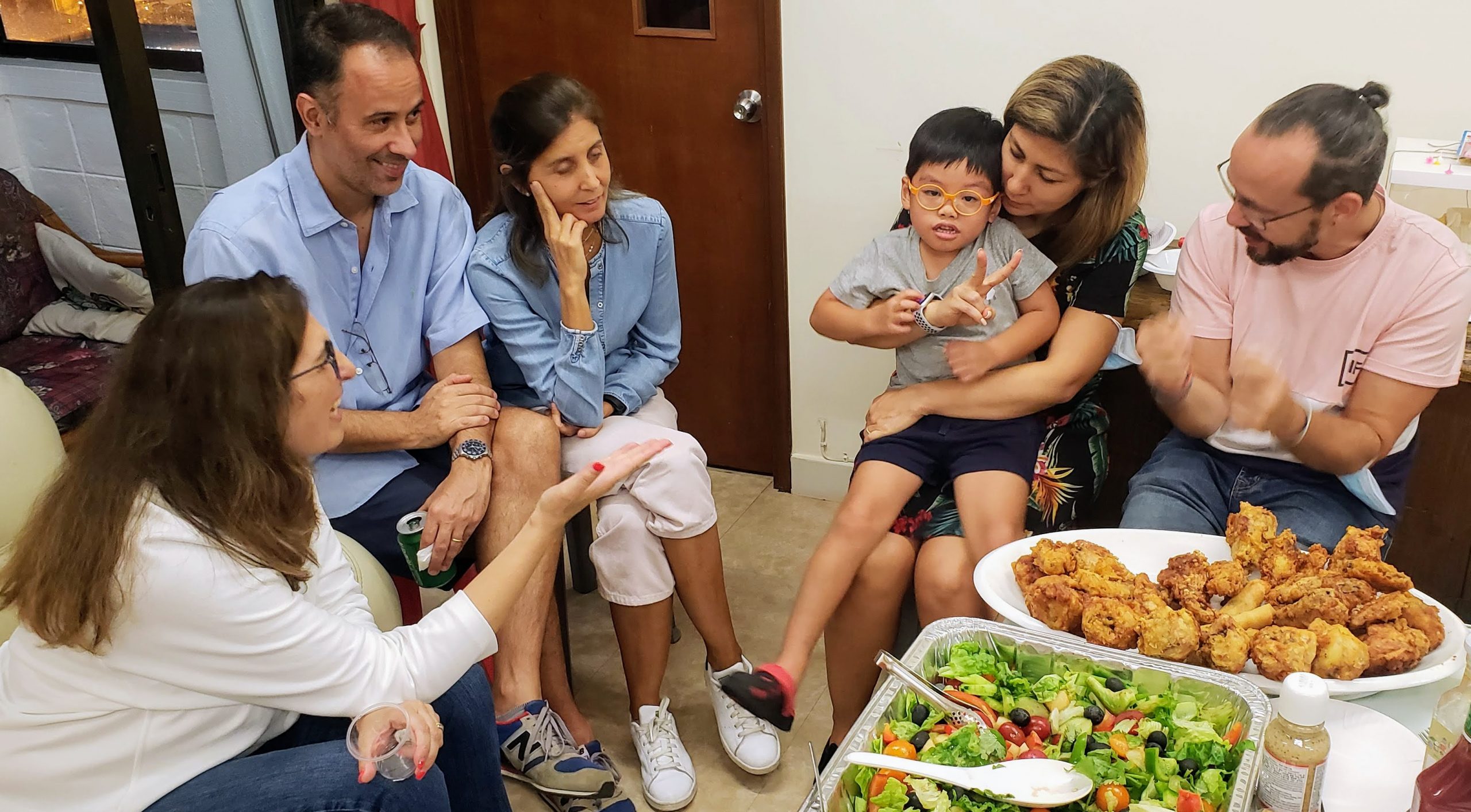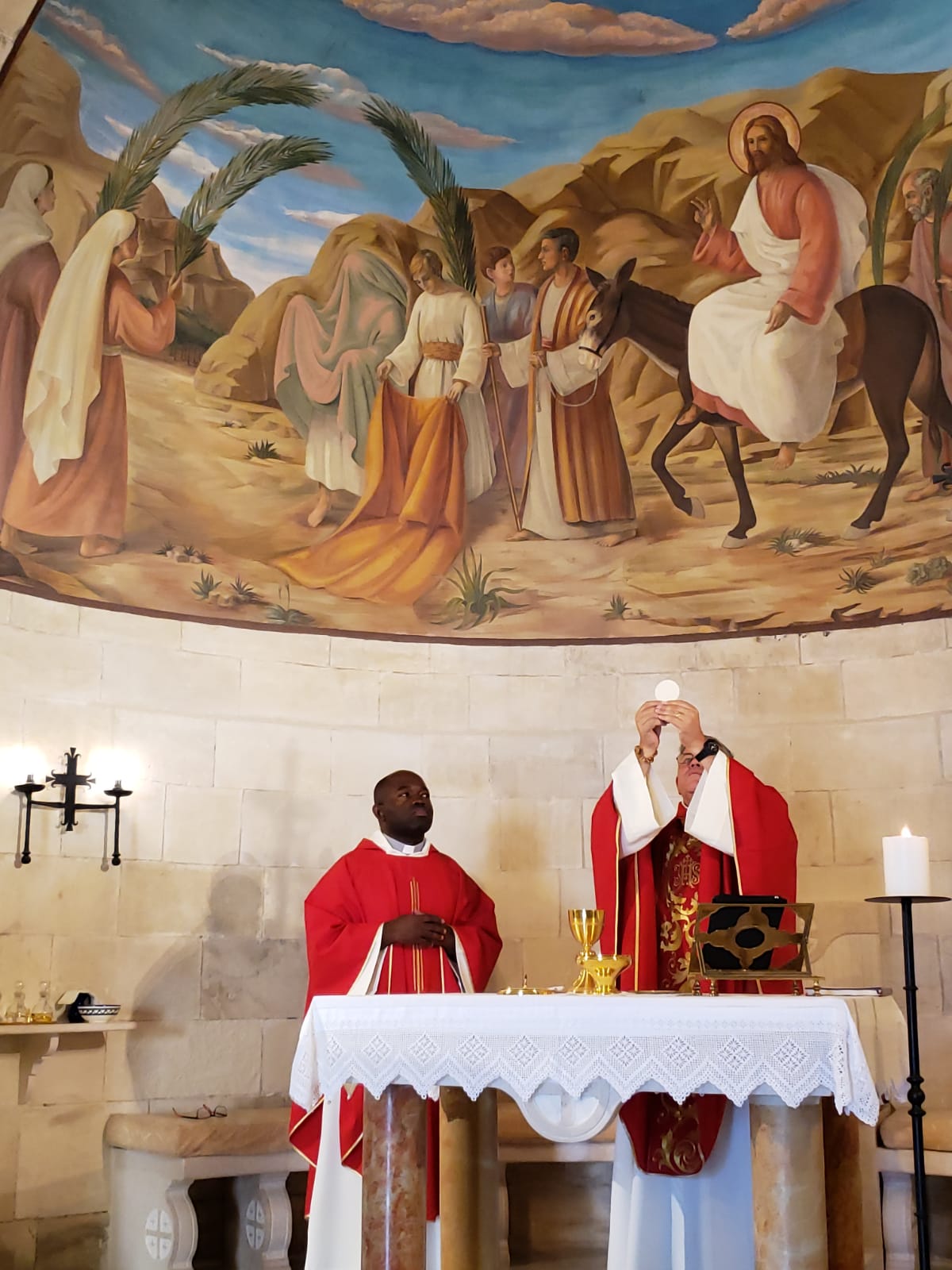Fr. Eduardo Emilio Aguero, scj
Mk 9:2-10
2ND SUNDAY OF LENT – YEAR B
Chinese New Year is a special time for families to join and celebrate the joy of their lives and mutual love. I asked some children at our Sunday school what they value most in their lives. Most of them answered spontaneously: “My parents”, “My family”, or “My baby brother or sister”.
How many fathers come from the mainland to do construction work in Macau, leaving the comfort of their homes just to be able to support their families? The same happens with Indonesians, Filipinos, Vietnamese, and persons from other countries who work hard as security guards, cleaning staff, or domestic helpers, just for the sake of their families. Family is what we value most. We are willing to exert any sacrifice for our children and loved ones.
Abraham and Sarah were finally granted their child in their old age. Isaac was the apple of their eyes. There could be hardly anything more valuable for them than their boy.
Has it never happened to you that that which you value the most in your life is at stake? I have witnessed the pain of separation of once happily-married couples, and I have shared the pain of their children. Everything seems to collapse for them, their dreams, their future, their hope. Something similar must have been Abraham’s predicament when God asked him to offer him his only son, the one he loved so much, on whom the hope of God´s promise lay. And he did not deny to the Lord his only son. That’s why for St. Paul, Abraham is our father in the faith (Rom 4:1-3).
Isaac is a figure of Christ as he climbed Mount Moriah, the place of his sacrifice, carrying the wood to be used for his holocaust, just as Jesus carried his cross to Mount Calvary. And Abraham is a figure of God, the Father. While the Lord spared the life of Isaac, Abraham’s only son, he offered his own, only begotten Son as a sacrifice of redemption for us: “He who did not withhold his own Son but gave him up for all of us, how will he not with him also give us everything else?” (Rom 8:32).
Why is it that on the second Sunday of Lent, the Church wants us to reflect on the transfiguration of Jesus? He had climbed a mountain with three of his disciples, Peter, James, and John. They were the witnesses of that event when Jesus’ body became radiant with light. They saw the two great prophets of Israel, Moses and Elijah, talking with Jesus. Even more than Isaac, He is the Son of the promise: All the promises of the Old Testament are to be fulfilled in Him. What happened on the top of that mountain was to strengthen the faith of the disciples who were about to face the scandalous death of their master on the cross. However, Peter wanted to stay there, as we would like time to freeze on our moments of bliss and family happiness.

Suddenly, they heard the voice of the Father: “This is my beloved Son…” This text opens the second part of the Gospel of Mark “Jesus, the Son of God” to be concluded with the profession of faith of the Centurion at the feet of the cross “Truly this man was God’s Son!”, (Mark 15:39). Lent is an invitation to follow that road from the mount of transfiguration to Mount Golgotha, where the Son of God offered his life in sacrifice for us. Like the three disciples, we also have to descend from that mountain face our challenges and trials, and be transformed by God’s unfathomable love.
The second word of the Father urges us to “listen to Him”. Like Jesus, the Servant of Yahweh, whose ear was opened to obey and to learn from His Father, we are called to obedience: “Morning by morning He wakens, wakens my ear to listen as those who are taught. The Lord GOD has opened my ear, and I was not rebellious” (Isaiah 50:4-5). He is the very Word of God made flesh. To listen to Him means to pay attention to both His words and his action, and to learn from his generous offering of his body and shedding of his blood for us.
This is the proper attitude of a true disciple of Christ: full attention and contemplation of the mysteries of his life, death, and resurrection, and fulfillment of his command to love as He has loved us (cf. Jn 15:12), which means to make of our life a sacrifice of love for the Church and the world. This is the meaning of His last words at the Last Supper: “Do this in memory of me” (Lk 22:19). Our life, according to the founder of my congregation, Fr. Leo John Dehon, should be “a never-ending mass”.
This brings us back to Abraham’s faith and God’s generosity in offering what was most loved and precious to them.
Lent is a time of transformation, a time to be detached from the superfluous to “listen” to the Lord, to obey, to pay attention to His great love, allowing us and our families to be transformed, transfigured by His powerful Grace.


 Follow
Follow


